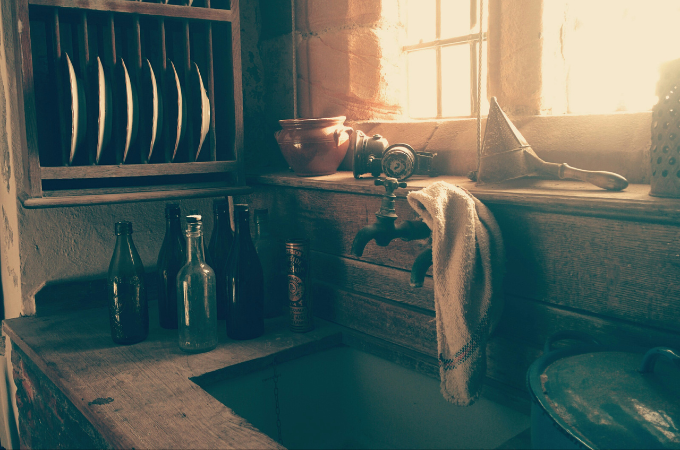
you and me
are different stories
together
we are incomplete
I knew he would return to where the past hung in frames surrounded by acapelling frogs and dewed rainbows.
I knew he would return to where the see-saw began to rust and a storm knocked over the merry-go-round.
Seven years of being prodded under blinding fluorescent, of frothing tears spilling over when the scarlet wave broke through unwelcome gates.
Eighty-four months of hiding because how dare you celebrate a promotion when your stomach is as flat as an ironing board; three hundred and sixty-five weeks of burdened gaspings, wishing a waterfall inhabited this desert.
I knew he would return to where I finally held my benediction swaddled in a pink layette after two thousand five hundred and sixty days, watched her crawl and steady on Michelin’s limbs.
There, amidst much-desired chaos, I chased her around shimmering flowers and stood over the cot, recounting her digits in the night light before being pulled away by him.
I knew he would return to where the doors gave way, spitting soldiers through gutters.
I knew he would return to where his bloodied body plummeted to the ground, and prayer plunged down my throat.
***
Located in the heart of Arabale, Ile wa was a housing-for-all program launched by the Western State Ministry of Housing in 1970. It was a close-knit neighbourhood of cookie-cutter three-bedroom bungalows where the adults knew the children by name and believed it took their village to raise them.
Ayọ was her brother, Adesọla’s best friend. He was not intimidated by Ba’mi like other children but was as comfortable with adults as his peers, engaging them rigorously, no matter the topic. Ba’mi encouraged his fraternising with Adesọla, hoping the relationship would even keel her brother, ‘It’s not natural for a boy his age not to be interested in girls. All he does is study.’ ‘Something isn’t right.’ Ba’mi’s words always carried a bite.
Adesọla was Ba’mi’s replica in features—tall, dark, with a prominent forehead. Unlike their father, he was warm, gentle and charismatic, lighting rooms and not an alienating flood eliminating others.
In those early days, when the future seemed far away, Ayọ was the only teenager she heard speak with fiery convictions of a system of inequality that manipulated the masses by weaponising hunger, one that exploited differences along faultlines of tribe and religion. He drew a following in the neighbourhood of an older crew—young men and women already in university. He helped draft their speeches and worked on the students’ union gazette, a widely circulated read on their campus. By the time he gained admission into the university, he was already somewhat of a legend in their midst. He spoke with the eloquence and emotional maturity of one who had lived long before his time. Ma’mi called him arugbo, to his amusement and Ba’mi’s irritation.
By the time Ademide joined Ayọ and her brother at the university, she was already a willing fly caught in the cobweb of his making. They attended national meetings on different campuses, addressing students through their elected officials, speaking extensively on the damage of poor governance—the impunity to which the treasury was being looted, the injustice of inequality of opportunities, and the bleakness of the future if nothing was done to forestall the collective greed of the political class. They picketed while tanks rolled down, heralding the burning rain of tear gas.
Some died, many were injured.
Many, including Ayọ and Adesọla, were incarcerated.
Due to the collective outcry of the masses and Amnesty International, they were released.
Adesọla relocated to Britain.
Ba’mi died.
Ademide and Ayọ married and moved to Lagos, and her unfettering to the course began. It wasn’t sudden but a gradual transition as she, like others, progressed in individual pursuits despite prevailing societal vices. Ayo’s commitment to the cause didn’t waver. If anything, he became more consumed, believing he had to make a difference, especially for those lost. As Editor-in-Chief of The Patriot, he was frequently away, leaving her with time after returning home from The Region Bank to mull and often cry in the laughing silence. Her desire for children anchored to this ship he steered at will, and she—completely wrapped and submerged, plunged with the domino effect of his choices.
When he returned, the words were regurgitated. He listened—milkweed orbs drowning her defences, hands dancing across her skin, abating fury.
Soon, I will return for good.
That was only when he lied.
To be an agent of the masses was to be a flame. To be a flame was to stay lit. One didn’t take time off fanning embers, or they would grow cold and lose heat.
The years flew by, and the landscape grew more turbulent. Adekanbi Gbadegesin, his colleague from a sister newspaper in Ilorin, was murdered on his way to a political rally. Chinua Agboti’s charred body was pulled from a smouldering vehicle on the shoulder of the Lagos-Ibadan Expressway. Unidentified men mowed down Ahmed Kanu and his family… bodies were piling up behind slews of political imprisonments.
Adura arrived. And for a while, she jackknifed into overflowing joy despite the niggling fear inhabiting the back of her throat, like the residual phlegm of a horrid cold.
Why couldn’t he see it was useless fighting this hydra?
Why couldn’t he see he was an ineffective sword, unable to do any lasting damage? And the question echoed in the dark corridors while she traversed space: who would pay for it?
***
The Patriot was shut down, and they entered a time capsule littered with dirty diapers and unhurried, hushed conversations, heavy-eyed yet excited beneficiaries of each coo, gurgle, and fart. He wondered out loud what his friends complained about. He had done sleepless nights in prison, hung by his feet till he confessed to anything and everything. Sleepless nights, for one, sprung from his loins, one so beautiful, was beyond glorious. He rarely woke Ademide those nights, making do with previously expelled milk; she frequently found them asleep, buried in the sofa, one arm flung across his head, the other cuddling Adura to his chest. An invisible hand shielded them for a season as they lived off her income.
When she returned after a long day of shuttling between her office and customers in the banking hall to a home replete with good food, Fela and Egypt 80 blaring from the speakers, she knew it wouldn’t last… like the phlegm in her throat would eventually lay waste, curdled and green against the white of the bathroom sink. She knew he would return to fanning the embers burning his limbs. She felt the heat in his fingers, his feverish thrashing in their desperate coupling… two swimming against the tide… trying not to drown.
Why was she not enough?
Why was Adura not enough?
The week after Adura started preschool, he left for Kenya for a conference. While he was gone, she was plagued by a recurring dream. She stood at the door of their home in her wedding gown, and when she crossed the threshold, pieces of her outfit went up in flames. First, her veil, then her dress, then her shoes, till she stood naked at the beginning of the stairway. Each time, she awoke terrified, feet pounding the ground to scoop Adura up in her arms. She knew he would bring their unspooling when he returned, yet her love for him superseded her fear.
***
Mami didn’t knock. Her face and posture prepared for war, but Ademide didn’t want to fight her mother. Not now. “He won’t leave without speaking to you,” and with those words, she was alone again.
Grey curls graced his edges, and those eyes still carried heat. “Be civil, please,” Ma’mi’s eyes swept from one to the other as she swiftly got to her feet and disappeared into the kitchen. Despite being lit through the louvred windows of the square walls, the living room seemed darker; the two mismatched floral three-seaters, a Versaille six-seater dining set, and two armchairs shrunk. She took the armchair between the sofas while he repositioned himself to sit awkwardly closer.
She stared ahead, knowing his eyes were cloudy, and his lips hugged ferociously, “I am sorry, Ademide.”
“For what?”
“Everything.”
I’m sorry for hearing but not listening.
I’m sorry for not making a way out of the jungle.
I’m sorry for not protecting you when the hunters came calling.
“When are you leaving?”
“I’m back for good.”
“I mean here.”
“This evening.” As she shot to her feet, he slowly rose. Then, meeting her gaze, he sunk to his knees and wrapped his arms around her ankles, “Please, Ademide.”
She shrunk from his clutches like they were hot coals and turned towards the bedroom, “Have a safe trip back.”
The following Saturday, he was back, and the next, and the next. He sat with Mami each time she supervised weekend tutoring at Lafenwa Montessori, Ma’mi’s private primary and secondary school Ademide ran as CEO after relocating to Ibadan years earlier. He was a delegate of the Washington, DC-based non-profit Africa Unite, an independent observer of the peaceful transition from military rule of Gen Abdulsallam Abubakar to a democratic government and press secretary for a presidential candidate, mobilising the grassroots. She pretended the titbits from Ma’mi were new, making polite noises, like when Adura kept her updated, hoping for a reaction. Adura was a Political Science graduate of Howard University from the United States, where she had joined her father after secondary school.
While her mother spoke, Ademide’s thoughts drifted to Ọlamide. They were friends in secondary school, and though she knew he carried a torch for her then, nothing came of it. They stayed in touch, with him stopping by when she was on holiday from school. Those visits stopped when he started dating Lara, an acquaintance from Ile wa who eventually became his wife. A few times, they bumped into each other at social events, and each time, Lara’s hawkish presence made him skittish. She wondered more than once what happened to the boisterous young man she remembered. Lara was one of the many tragically killed in a plane crash shortly after takeoff in Lagos years earlier; she was delightfully surprised to find him on the other side of the door, retired from the merchant banking industry and running a real estate company in Ibadan. He still had the same disarming smile, and the characteristic wit was back, drawing full belly laughs.
With Ọlamide, there was no foreboding. With Ọlamide, loud noises didn’t bring sweat. With Ọlamide, she wasn’t constantly looking over her shoulders. He was the sweetness of ogurọ merged with asun, but his attempts at intimacy were met with tears, her tongue curdling to his whys. When she said she would stop coming over, he wrapped his arms around her and said it wasn’t that important. Sex was great, but lovemaking was better, and he would be lying if he said he didn’t want it and hadn’t dreamt about it for so long, but now, with her, he was ready to wait. She wondered for how long the winding conversations, consisting of their day-to-day once he opened the front door, breaking only to catch the news highlights and cuddling, would be enough.
She had plunged head first into the simmering embers of Ayọ, a pulsating need that left her burnt. Ọlamide was the awakening of desiccated skin, cooling her parched tongue. With him, no shadows lurked in dark hallways, and most importantly, no feeding her to a never abating flame. Ọlamide was not what she had wanted, but he was definitely what she now needed.
***
Ma’mi asked how long she intended to live like this one evening after dinner. “Live like what?” Ma’mi gave her the side-eye and twisted her lips in mock amusement, “A trollop.”
“Ma’mi!”
“I’ve been waiting for you to come to your senses, Ademide. But it seems you will need assistance in that regard.”
She scuttered off the sofa, “I didn’t leave Ayọ. He left me!”
“Sit down. I’m still talking.” Ademide sunk back on the cushion. “He was incarcerated… and when he was released, had to leave. You chose not to join him, sending Adura alone. I’m not blaming you, it was a difficult time.”
“I deserve to be happy.”
“I agree, but you are married. You can’t carry on as if you are not.”
“I don’t know why you are holding brief for Ayọ… I distinctly remember your being against our marriage.”
“Our people say – what an adult sees sitting down, a child cannot see atop a tree. I didn’t want you to marry him because I knew his path would be difficult.”
“Well, I don’t want that path anymore, Ma’mi. It hurts to love him,” Ademide’s voice broke.
“After it has yielded fruits with thorns?”
“I don’t care anymore. Adura is no longer a child. I have never been one to support adultery, and I would never have guessed this present in my past. Is it wrong to desire peace with another?’
Mami’s face was immobile, and then, after a minute, she leaned towards her daughter and whispered, “Who are you, and what have you done with my daughter?” Ademide’s laugh drew a reluctant chuckle from her mother.
“I refuse to feel guilty about Ọlamide.”
“Have you heard me quote any bible scriptures since we started talking? I’m not trying to guilt you; I am saying this, if you don’t want Ayọ anymore, get out of your marriage.”
If you don’t want him…
Get out of your marriage.
The words were the first to come to mind when she awoke the next day, May 1st, a public holiday. She was in bed when the phone rang at 10 am. Usually, Ma’mi made it to the phone with the alacrity of a sprinter. She pulled herself out of bed when she didn’t hear Ma’mi’s voice after the fourth ring. The ringing had stopped when she got to the living room, but its echoes resounded in the living room, juxtaposed with her mother’s words from the previous night.
Get out of your marriage.
***
Ọlamide was away visiting his children in London. She had declined his invitation to come along. His children were courteous and always polite, but she would have been the third wheel. It was only fair for them to have him all to themselves for this jaunt since she had him to herself most of the time. Besides, she enjoyed her own company in his house… their home. His children’s rooms had been converted to a gym and library, respectively, and the long, wide, brightly lit hallways were havens of contemplation as she made her way from one space to another. Her favourite place was their bedroom, where she felt at peace within the sheets, as in his arms. She was about to cross the threshold to sleep when the screaming phone jarred her awake.
That was Saturday.
She arrived at Ma’mi’s on Friday. The freezer was still replete with sauces, vegetable soups, meats, and other perishables. She got cooking to busy her mind and hands, then started cleaning. When the bathroom tiles winked, she sat on the ball of her feet, back aching, palms itching from the detergent and bleach water. Ma’mi watched her quizzically, waiting.
On Friday, they had breakfast, then lunch. Still, Ademide said nothing. Finally, after dinner, as they sat on the couch opposite the 60-inch flat-screen plasma TV and Ma’mi peered into a weathered brown jacket hymn book humming a tune, Ademide let out a deep sigh, “Chuka asked Adura to marry him, and your foolish granddaughter said no.” Ma’mi kept on humming. “Ma’mi?”
“She is not a child.”
“Ȩbun deserves to be raised by two parents who love her.”
“She will be raised by two parents who love her. Just because they are not married doesn’t mean they can’t co-parent. In any case, it’s not your decision to make.”
“I thought having the posture you do towards Godly living, you would want her to do the right thing and marry her child’s father.”
When Adura announced her pregnancy on the conference WhatsApp call with her boyfriend Chuka in one square, herself and Ayọ in separate boxes, Ademide’s smile froze, while Ayọ’s didn’t waver. Later, she learned from Adura that he had been told in advance. That was their way, them on one side, her on the other, ever since Adura joined him in the US.
Since then, she felt Adura’s resentment like a wound beneath scabs, aggravated by the slightest pressure. Adura didn’t understand why her mother stayed in Nigeria. Why her mother refused her father’s overtures. Why her mother was unmoved by his pleading.
Adura couldn’t understand
What Ademide left unspoken.
How could she tell Adura what was done to her by the soldiers after her father was dragged away? How could she tell Adura she was left in shreds, haunted by uniforms? All uniforms. How could she tell her daughter she left Lagos without a backward glance after her bladder gave way in traffic when mobile policemen sped by… after the security man at the bank morphed into one… two… three… a colony of faceless soldiers, and she woke up screaming surrounded by white coats.
Ademide didn’t believe in a future borne from the unspooled tapestry of their past, a landscape drunk in tears and blood. She wanted to lie awake in splendid sleep, without the now expelled nagging ache in her throat, where she wasn’t a nervous bird poised for flight when the past came calling, as it did as nightmares, infrequently escaping blockades into her present. She didn’t want those shadows awakening her, trembling to Ọlamide’s kisses on her face, his arms reinforcing gates.
How could she tell her daughter that she avoided anything that could morph into her worst nightmare?
Adura returned to Gbagada after her father, and after a slew of not-right-fit jobs, found one she loved as a program director for Arts for Justice, a non-profit showcasing everyday Nigerians by everyday Nigerians, from the mundane crowded open-air markets of Oshodi to passengers boarding crowded bus terminals to mothers backing babies to the horrific aftermath of lynching. Arts for Justice won several awards and brought her many accolades, and a renewed frenzy by a younger generation plunged the floodlight anew on her father.
For Ademide, it was a reminder of her daughter calling out for her after the soldiers left, and she lay broken, unable to move for what seemed like forever. Adura’s crying drew her to her knees to collapse again. Adura’s fading call drew her to slither across the bloodied ground, eyes zoning in and out of darkness till she unlatched the closet, and her prayer fell into her arms. Adura didn’t remember she nearly asphyxiated, only that her mother came. It was a reminder of the early days of her return to Ile wa, when she stayed shrouded in unfamiliar darkness, unable to eat, sleep, and tongue-tied, how she stood outside her body, saw herself strapped down, lifted out of soiled sheets, screaming at medical personnel; it was a reminder of fleeting lucidity when a doctor shrugged off his coat to the instruction that no one wears uniforms in her room; the gradual ascent from the murky depths. What happened between the stairs and the master bedroom stayed unspoken until Ọlamide.
“I admire her resolve to go it alone.”
“Admire? Aren’t you worried what your church members will say?”
“The same church members I worried about when you were canoodling Ọlamide?” Ma’mi’s voice cracked like a whip.
“Ma’mi!”
“I let you find your way. You will extend her the same courtesy.”
“Adura can be hurt by her choices. Her whole life is in front of her, people will talk.”
“I don’t give a damn about idle gossip, Ademide! I am above and beyond that, and you should be too! The church is a place for hurting people, like you and me, and Adura. The church’s job is not to trample on someone trying to live with the consequences of their choices. God gives us free will for a reason.”
“Is it wrong as a parent to try to stop my child from making a horrible mistake?”
“The horrible mistake would be for her to marry for the wrong reasons. Even a marriage contracted in love may not survive the tides of life – you and Ayọ are examples. You want her to marry to save face. You should be more understanding for someone who married for the right reasons and has been through what you have. Let’s assume Chuka loves Adura. Can they survive on his love alone? He will constantly be making concessions to keep her and eventually grow resentful. They will both be unhappy, and that family will implode under pressure, leaving Ȩbun with a fragile psyche.”
“I don’t want Ȩbun raised in a broken home.”
“She will be raised by two whole parents, not two broken ones. That is not a broken home. In any case, what you want is irrelevant. Her parents will decide how to raise her. If, during their interactions, they decide to marry, fine. It will be their decision, not yours.”
“Adura was raised in a stable home. Why won’t she give the same to Ȩbun?”
“Look, you raised a strong woman. She is not a baby. This mentality that a woman or man without marriage is a second-class citizen keeps people hampered in unholy matrimony.”
“I stayed with her father until she was grown, why can’t she give Ȩbun the same stability?”
“You can hardly call your relationship with Ayọ staying with him…in any case you loved him. It was never about Adura, and you know it. He never pretended to be what he wasn’t. You knew life with him would not be easy, with all the trouble he stirred up in university, you insisted he was what you wanted, telling me he was the only one for you. And how did that work out? Even the blind can see Ọlamide makes you happy; don’t use him as an example here, my friend.”
“I was hoping you would champion a course that would give Ȩbun a sturdy background. It’s a gift Ma’mi, like what you and Ba’mi gave Adesọla and me.”
“And what price did I pay for that gift? I lost myself and, most importantly, Adesọla to that awful marriage! I wish I were more like my mother, who ran against all odds.”
“You made a sacrifice for us out of an abundance of love. You did nothing wrong.”
“Amazing how well you believe that lie,” Ma’mi’s smile was sad.
Ademide fell silent, her mind drifting to Adesọla’s cries percolating through the walls, the bruised knuckles, split lips… shirts with bloodied maps straining against his back.
Relief to be spared.
Relief to be favoured.
“I thought…”
“Burn your dreams on the pyre that feeds your husband’s ambitions, they said, and if you see anyone that doesn’t fall in line, she is labelled stubborn and unsubmissive. This marriage is your desire, not Adura’s. You are living your life. Let her live hers. Whatever consequence her choice brings… she will bear them as you bear yours, and I bear mine.” Ma’mi grimaced as Ademide picked up the discarded hymn book.
“Adeṣọla loves you.”
“I should have – could have – done more to protect him.”
Ma’mi sat back on the sofa and sighed, “You can do better by letting Adura find her way. How often have I nudged you in one direction, and you took another? Making peace with how different children’s choices differ from ours as parents despite our best intentions and efforts is part of life. Are you not the same person who looked down your nose at your cousin Aduni when she left her husband for another man?”
“That was almost forty years ago.”
“Her situation was similar to yours, yet you thought yourself better for some reason.”
“Experience has made me less judgemental.”
“That experience should be the determining factor in your support of my granddaughter,” Ma’mi closed her eyes. After a long silence, Ademide thought she had fallen asleep, and then her mother opened her bright eyes, “I will not discuss this again.”
The phone’s shrill ring cut through the tension. Ma’mi reached for the receiver. The skin stretched across her cheeks, and her lips relaxed into familiar lines in a wide smile. Her tensed shoulders sagged in relief; Ademide knew her brother was on the other end.
Maybe Chuka will grow on Adura.
Maybe Adura would change in the future.
May Adura turn out better than her.
*Adura means prayer
Photo by Jim DiGritz on Unsplash




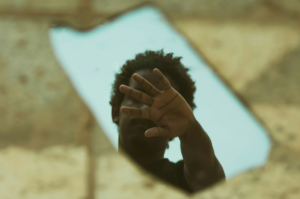

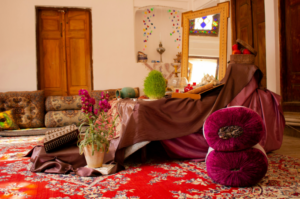
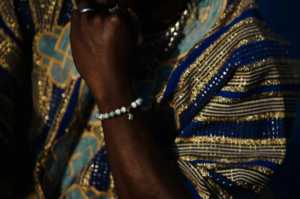
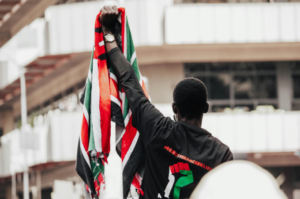

COMMENTS -
Reader Interactions